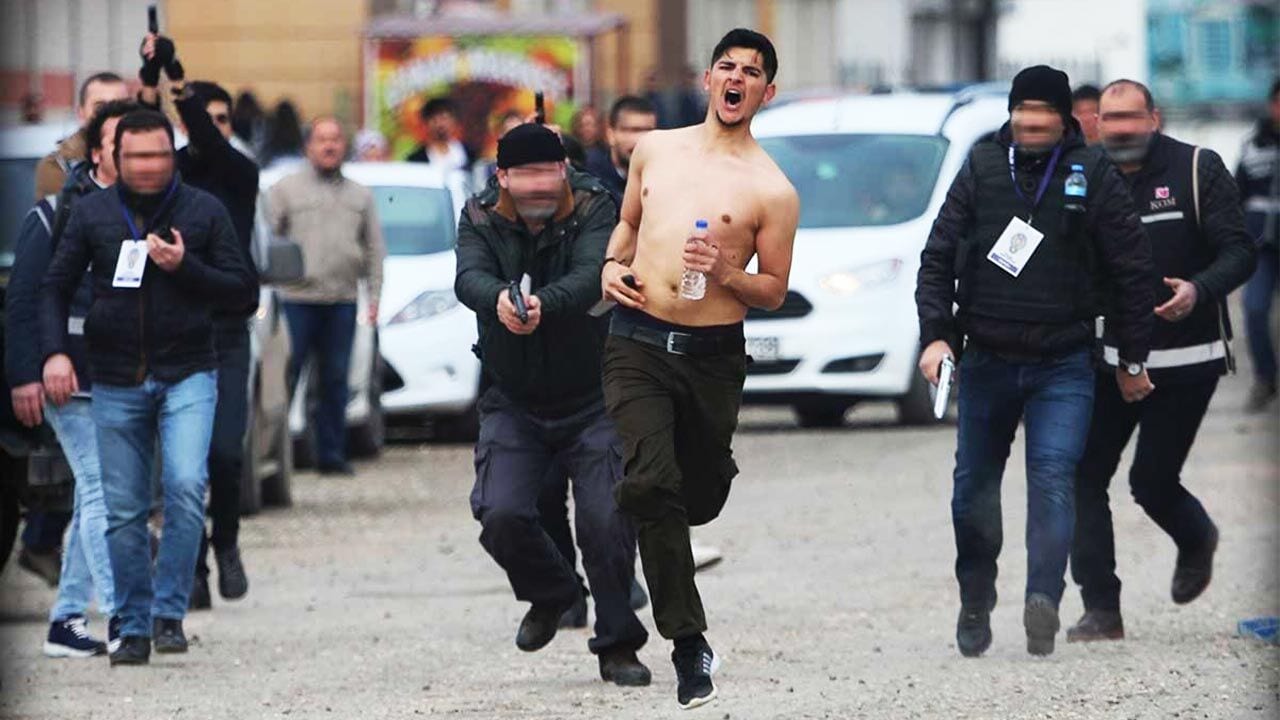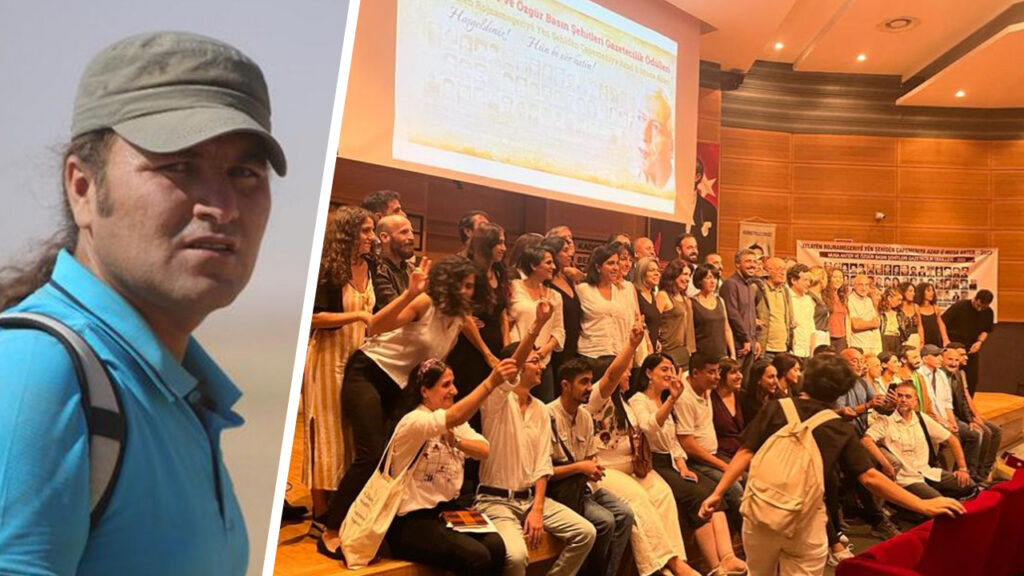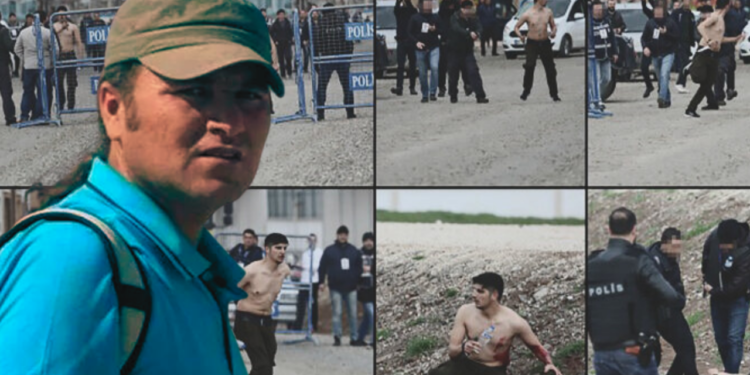The main motivation behind Abdurrahman Gök’s detention since April was his photographing of the police shooting of Kemal Kurkut during the 2017 Newroz celebrations, the jailed Kurdish journalist told Expression Interrupted, a website which monitors legal proceedings against journalists and academics in Turkey.
Mezopotamya Agency editor Gök was one of the journalists sent to prison awaiting trial after mass arrests of pro-Kurdish circles across the country in the run-up to the first round of general elections in May, in which President Recep Tayyip Erdoğan secured another term. The next hearing of the case against him will be held on 5 December in Diyarbakır (Amed).
The indictment against the journalist cites books that can be legitimately ordered online, the social security registration entered for him by the institution he works for and photographs he took in northern Syria as evidence of his alleged “membership of an illegal organisation”.
Gök’s detention: A chronicle of threats and intimidation following exposé of police shooting
Gök has been a journalist for nearly 20 years, but the public knows him primarily for the photographs he took in 2017, documenting the shots Turkish police fired at 23-year-old Kemal Kurkut, killing the young Kurd as he was joining the Newroz celebrations.
The governor at the time said Kurkut had been wielding a knife at the police checkpoint on the way to the area the festival was taking place. Police officers claimed the young man had been a suicide bomber.

Gök’s series of photographs showed Kurkut, topless and holding a water bottle in one hand and an object that may or may not have been a knife in the other, running along with his back turned to the police, and collapsing shortly after, having been shot in the back.
Two officers were investigated for the death of the university student, but were acquitted in 2022.
“After publishing these photographs, I was subjected to many threats, from physical surveillance to technical surveillance, from anonymous phone calls to house raids. I was repeatedly arrested. Now, finally, I have been remanded in custody,” Gök said.
In 2022, Gök was sentenced to 18 months and 22 days in prison for these photographs. His lawyers stated that they would take the case to appeal.
“After the Kemal Kurkut photograph was published, the police raided my house. Since I was at work, I went to the police station afterwards and gave my statement. I was told that someone had informed on me. I didn’t know the details. Then it resulted in non-prosecution. I was called to testify on that same case again in 2017, the same year. In October 2018, the police raided my house again. I was released three days later after giving a statement at the police station,” Gök said.
When the police officer who shot Kurkut was acquitted after the trials, a new indictment was lodged against Gök. This time the prosecution demanded up to 22 and a half years in prison. The indictment was based entirely on his journalistic activities. He was tried without detention, on the basis of an indictment consisting of news reports and photographs and the testimony of a secret witness. The prosecution claimed that Gök had taken the photographs in question “on the instructions of the organisation”.
Gök the journalist
Gök has spent the last 12 years of his more than 20 years of journalism in conflict zones, travelling to Syria in 2011 to follow the civil war, following ISIS attacks against Sinjar (Shengal) in northern Iraq and Kobani (Kobanê) in Syria in 2014, and following the campaign against ISIS in Raqqa in 2016-17. Gök, who also covered the nationwide protests that started with the death of Jîna Mahsa Amini in Iran, said that all these were quite challenging processes, adding:
“However, when your news stories help people with their problems, you also cope with your own traumas. When you do human-oriented, nature-oriented journalism, when you focus on human stories, you actually contribute to the solution of many problems.”

Gök, who has now been behind bars for seven months, said that every time he watched TV he wished he was in Gaza, and that he also wanted to report on Turkey’s attacks on Kurdish-controlled areas in North and East Syria.
“When I don’t see [the attacks on North and East Syria] on TV or in the newspapers, I realise why I am in prison,” Gök said, pointedly.
The journalist said that he spends a lot of his time in prison reading, adding that he does not have access to opposition newspapers and television channels and can only get news from sources that praise the government.










